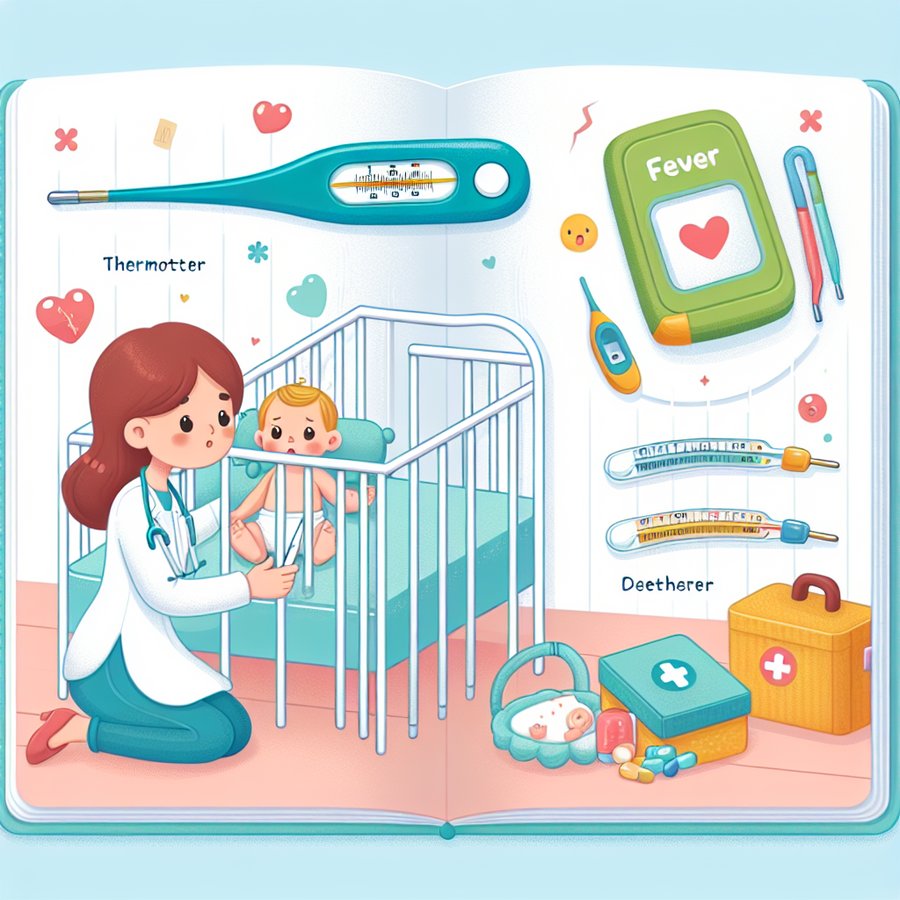Managing fever in infants: When to seek medical attention is a critical aspect of parenting that requires careful consideration and knowledge. Fevers, while often a sign of the body fighting off an infection, can be particularly alarming when they occur in infants. Understanding when to seek medical attention for your infant’s fever is not only about responding to the fever itself but also about recognizing potential underlying conditions that may require professional care.
Understanding Fever in Infants
Fever is a common response of the body to infection and is defined as a rectal temperature of 100.4°F (38°C) or higher. In infants, even a mild fever can be a sign of a serious infection. Since infants’ immune systems are not fully developed, they are at a higher risk of contracting infections that might be minor for older children or adults.
It’s crucial for parents to know how to accurately measure a baby’s temperature and to monitor for other symptoms such as irritability, poor feeding, lethargy, or difficulty waking. Early detection and appropriate response are key in managing fever in infants effectively.
Managing Fever in Infants: When to Seek Medical Attention
Managing fever in infants: When to seek medical attention is vital to ensure your infant’s health and well-being. If your baby is less than 3 months old and has a rectal temperature of 100.4°F (38°C) or higher, it is crucial to seek medical attention immediately. At this age, even a slight fever can indicate a serious infection or condition.
For infants older than 3 months, while a fever might not always be an emergency, it’s essential to observe other symptoms that could indicate the need for medical attention. These include difficulty breathing, a rash, signs of dehydration (such as fewer wet diapers), or if the fever persists for more than 24 hours. Additionally, if your infant seems unusually irritable, has difficulty waking up, or refuses to eat, these could also be signs that it’s time to consult a healthcare provider.
Home Management Strategies for Infant Fever
While managing fever in infants, there are several strategies parents can employ at home to comfort their child and lower the fever. These include keeping the infant hydrated, dressing them in lightweight clothing, and providing a lukewarm bath. However, it’s essential to avoid using cold water as it can lead to shivering, which might increase the body’s internal temperature.
Over-the-counter medications, like acetaminophen (Tylenol) or ibuprofen (Advil), can be used for infants older than 3 months, but it’s crucial to consult with a healthcare provider for the correct dosage based on the infant’s weight and age. Never give aspirin to an infant due to the risk of Reye’s syndrome, a rare but serious condition.
Managing fever in infants involves careful monitoring and sometimes, home management is all that’s needed. However, knowing when these home strategies are not enough and when to seek medical attention is crucial. If you’re ever in doubt, it’s always best to err on the side of caution and consult with a healthcare provider.
For more information on infant care and health, explore our articles on Essential First Aid Skills Every Parent Should Know, Recognizing Signs of Food Allergies in Infants, and Hydration Tips for Ill or Feverish Toddlers.













